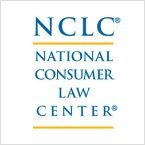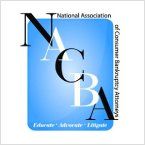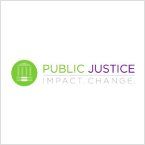CLIENT LOGIN
×Basic Questions
A decision to file for bankruptcy should be made only after determining that bankruptcy is the best way to deal with your financial problems. These questions and answers cannot explain every aspect of the bankruptcy process. If you still have questions after reading them, you should speak with an attorney familiar with bankruptcy issues or a paralegal working for a bankruptcy attorney.
What is Bankruptcy?
Bankruptcy law is a federal statute. It is implemented under Article I of the United States Constitution. It is a federal law so that bankruptcy proceedings will be uniform throughout the United States. Generally speaking, bankruptcy is a method by which a person who owes money (known as a “debtor” under the bankruptcy code) can submit all of his or her debts and assets to the supervision of the Bankruptcy Court so that the debt may either be eliminated completely (discharged) or to allow for restructuring of the terms of the debt (reorganization) so that payment can be made (for example, by extending the time for payment or through other means allowed by the law). Filing bankruptcy immediately stops all of your creditors from seeking to collect debts from you, at least until your debts are dealt with according to the law.
Who may file Bankruptcy?
Any person, a married couple filing together, a partnership, a corporation, or even a governmental unit may file bankruptcy.
What types of bankruptcies are available?
There are four types of bankruptcy cases provided under the law:
- Chapter 7 is known as “straight” bankruptcy or “liquidation.” It requires a debtor to give up property which exceeds certain limits called “exemptions,” so the property can be sold to pay creditors.
- Chapter 11, known as “reorganization,” is used by businesses and a few individual debtors whose debts are very large.
- Chapter 12 is reserved for family farmers.
- Chapter 13 is called “debt adjustment” or “wage earner” reorganization. It requires a debtor to file a plan to pay debts (or parts of debts) from current income.
Most people filing bankruptcy will be eligible to file under either chapter 7 or chapter 13. Either type of case may be filed individually or by a married couple filing jointly.
Chapter 7 (Straight Bankruptcy)
In a bankruptcy case under chapter 7, you file a petition asking the court to discharge your debts. The basic idea in a chapter 7 bankruptcy is to wipe out (discharge) your debts in exchange for your giving up your non-exempt property (the law allows you to keep certain “exempt” property). In most cases, all of your personal property will be exempt. But property which is not exempt is sold, with the money distributed to your creditors.If you want to keep property like a home or a car and are behind on the payments on a mortgage or car loan, a chapter 13 case probably will be the right choice for you.Click herefor additional questions and answers on Chapter 7 Bankruptcy.
Chapter 13 (Reorganization)
In a chapter 13 case you file a “plan” showing how you will pay some part of your past-due and current debts over three to five years. The most important thing about a chapter 13 case is that it will allow you to keep valuable property — especially your home and car — which might otherwise be lost, if you can make the payments which the bankruptcy law requires to be made to your creditors. In most cases, these payments will be at least as much as your regular monthly payments on your mortgage or car loan, with some extra payment to get caught up on the amount you have fallen behind.
You should consider filing a chapter 13 plan if:
- You own your home and are in danger of losing it because of money problems;
- You are behind on debt payments, but can catch up if given some time; or,
- You have valuable property which is not exempt, and you can afford to pay creditors from your income over time.
You will need to have enough income in chapter 13 to pay for your necessities and to keep up with the required “plan” payments as they come due
What is a Chapter 7?
In a “straight bankruptcy” or Chapter 7, any “nonexempt” property or assets will be sold by the Bankruptcy Trustee, with the money derived from the sale of property to be used to pay the creditors’ claims. However, most property owned by individuals is “exempt” property. This means that the property is exempt from attachment by the creditors, and cannot be sold or utilized to pay creditor debts. In California, a person’s household goods and furnishings, wages, and personal effects are generally all exempt and cannot be taken by the creditors or by the Bankruptcy Trustee.
In a Chapter 7 bankruptcy, most debts are discharged within approximately 4-6 months after the filing. However, this type of bankruptcy may not be appropriate in certain situations. For example, some debts are not dischargeable, which means these debts continue to exist and are collectable after the bankruptcy is over. Child support obligations, student loans, and certain tax obligations are ordinarily not dischargeable in bankruptcy. Additionally, if a creditor has a security interest — a lien, mortgage, or deed of trust on property — this security interest survives the bankruptcy. The underlying debt is discharged, but if the property is not paid for, the creditor gets the property back. As a result, many people still end up owing money after the filing of a straight bankruptcy, in the form of tax obligations, student loans and payments on secured property.
What is a Chapter 13?
Under the Chapter 13, formerly known as a “wage earner plan,” the purpose is to attempt repayment of some of a person’s debts, rather than simply discharging them. Under present law, a debtor must have regular income from some source, and must make monthly payments to a Bankruptcy Trustee for a period of three years to be eligible for this type of bankruptcy. Any creditors to be paid, including secured creditors such as on car payments or other secured loans, are included in the one payment that is made to the Bankruptcy Trustee. The only exceptions to this are home mortgages on a person’s residence, which continue to be paid directly to the mortgage holder, and child support or alimony obligations, which are paid directly to the recipient. The considerations in determining the amount of the Chapter 13 payment include the value of any secured property, any mortgage payment arrearages, and any priority debts, such as tax obligations. To complete a Chapter 13 and to keep secured property, a person must pay at least the value of that property back to the secured creditor. For example, if the debtor has a car loan balance of $10,000.00, with the car being worth $8,000.00, then the requirement under Chapter 13 is that the debtor pay at least $8,000.00 to the secured creditor in order to keep that automobile. However, special rules apply for a purchase money security interest on an automobile owned less than 910 days, A debtor has up to five years to pay creditors under Chapter 13. If a creditor does not agree with the value placed on the property, the Bankruptcy Judge decides what the property is worth.
In addition, there are other significant differences between the Chapter 13 and Chapter 7 bankruptcy. Under the Chapter 13, some debts can be discharged or eliminated, which might not be dischargeable in a Chapter 7. A Chapter 13 can also act to reduce payments on debts in three ways:
- Interest on any unsecured claim, such as credit cards, stops running and the debtor simply pays back the principal due and owing to that creditor.
- Most consumer debts have a repayment cycle of one to three years, but under the Chapter 13, the debtor may take up to five years to pay back any obligation. This type of extension would reduce the payment owed to any creditor.
- The debtor can, in certain circumstances, pay less than the total amount of the debt due and owing under certain rules established by the Bankruptcy Court, which will also reduce the amount which must be paid.
What is a Chapter 11?
This type of bankruptcy is available for business, to allow troubled companies (or even individuals in business) to reorganization or restructure debt so that the business can continue to function. The idea is that a going business will probably be better able to pay debts, that liquidating a defunct business. A detailed plan or reorganization must be submitted by the debtor to all creditors approximately four months after the case is filed. Creditors are allowed to vote for or against the plan. If a majority of creditors fail to vote for the plan, the Bankruptcy Court may still approve the plan in certain circumstances.
What is a Chapter 20?
The short answer is—there really is no Chapter 20 bankruptcy. However, a technique has been developed whereby individuals who need the benefits of a Chapter 13, but for some reason (usually their total liabilities are above the debt limits) cannot file a Chapter 13. Basically this technique involves the filing of a Chapter 7 bankruptcy, which discharges most, if not all, of the obligations. Then a Chapter 13 bankruptcy is filed to repay the secured creditors, tax obligations, and any nondischargeable debts. Thus, a Chapter 7 followed by a Chapter 13 is the so-called “Chapter 20” bankruptcy. Attempting a Chapter 20 can be quite complex and is very risky if not done correctly. Only an experienced bankruptcy attorney should attempt to use this technique.
What effect does bankruptcy filing have on creditors?
Under any type of bankruptcy, creditors are prohibited by the Bankruptcy Court from any type of collection activity, whether it be phone calls, letters, referral to a collection agency, filing of lawsuits, garnishment of wages, or repossession of property. The effect of the filing of any type of bankruptcy will be the immediate cessation of these types of collection activities. However, in the case of a Chapter 7 “straight bankruptcy,” any creditor having a non-dischargeable debt (student loans, tax debts, etc.) may again start collecting the debt after the bankruptcy is over.
What can Bankruptcy do for me?
Bankruptcy may make it possible for you to:
- Eliminate the legal obligation to pay most or all of your debts. This is called a “discharge” of debts. It is designed to give you a fresh financial start.
- Stop foreclosure on your house or mobile home and allow you an opportunity to catch up on missed payments. (Bankruptcy does not, however, automatically eliminate mortgages and other liens on your property without payment.)
- Prevent repossession of a car or other property, or force the creditor to return property even after it has been repossessed.
- Stop wage garnishment, debt collection harassment, and similar creditor actions to collect a debt.
- Restore or prevent termination of utility service.
- Allow you to challenge the claims of creditors who have committed fraud or who are otherwise trying to collect more than you really owe.
What can Bankruptcy not do for me?
Bankruptcy cannot cure every financial problem. Nor is it the right step for every individual. Examples include:
- Bankruptcy does not eliminate certain rights of “secured” creditors. A “secured” creditor has taken a mortgage or other lien on property as collateral for the loan. Common examples are car loans and home mortgages. You can force secured creditors to take payments over time in the bankruptcy process and bankruptcy can eliminate your obligation to pay any additional money if your property is taken. Nevertheless, you generally cannot keep the collateral unless you continue to pay the debt.
- Bankruptcy does not discharge types of debts singled out by the bankruptcy law for special treatment, such as child support, alimony, certain other debts related to divorce, most student loans, court restitution orders, criminal fines, and some taxes.
- Bankruptcy does not protect cosigners on your debts. When a relative or friend has co-signed a loan, and the consumer discharges the loan in bankruptcy, the cosigner may still have to repay all or part of the loan.
- Bankruptcy does not discharge debts that arise after bankruptcy has been filed.
Will I Have to Go to Court?
Approximately a month after filing, the Trustee will conduct a “first meeting of creditors”, which the debtor must attend. This proceeding is also referred to as the “341 meeting”, named after the corresponding section of the bankruptcy code. Creditors rarely attend a Chapter 7 bankruptcy meeting although they have a right to; one or two creditors may attend a Chapter 13 meeting, especially if there is a question as to the legitimacy of some aspect of the plan. Objections are typically resolved by negotiation between the debtor or the debtor’s attorney and the creditor. If a compromise can not be reached, a judge will intervene.The meeting of creditors typically lasts about five minutes. The Trustee will have reviewed you bankruptcy paperwork and will normally have a few basic questions for you such as “Did you list all your creditors?” You will receive notice of the location of the meeting but you may contact the court to confirm the address and time. Most Chapter 7 filings involve no non-exempt assets, however, if you filed for Chapter 7 and do have non-exempt assets, you will have to turn over non-exempt property (or its fair market value in cash) to the Trustee after the meeting. The Trustee will sell this property and distribute the proceeds to your creditors. If the property isn’t worth a great deal or would be hard to sell, the Trustee may decide to abandon the property (and return it to you). Trustees and creditors have 60 days from the date of the 341 meeting to challenge the debtor’s right to a discharge. If there are no challenges, you will receive a notice from the court that your dischargeable debts have been discharged within roughly three to six months.Occasionally, if complications arise, or if you choose to dispute a debt, you may have to appear before a judge at a hearing. If you need to go to court, you will receive notice of the court date and time from the court and/or from your attorney.
What is a Bankruptcy “Trustee?”
Upon filing, the court will assume legal control of your debts and property not covered by your California exemptions. A Trustee will be appointed to your case by the court. The job of the Trustee is to see that your creditors are paid as much as possible. This person will thoroughly review your paperwork, particularly the assets you have in your possession and the exemptions you wish to claim, and can challenge any element of your case.
What Does It Cost to File for Bankruptcy?
It now costs $299 to file for bankruptcy under chapter 7 and $274 to file for bankruptcy under chapter 13, whether for one person or a married couple. These fees can be waived in some cases and the court may allow you to pay the filing fee in installments if you cannot pay all at once. If you hire an attorney you will also have to pay the attorney’s fees you agree to.The fee paid to an attorney representing a debtor in a bankruptcy case must be disclosed to the court. The court will allow the attorney to charge and collect only a reasonable fee. That being said, our rates are competitive with other firms in the area.The cost of the filing and the time of the payments depends on a number of variables — whether you choose to file a Chapter 7 or Chapter 13 bankruptcy, how complex your case is, what your personal circumstances are, and guidelines established by the court.For Chapter 7, our fees are comparable to fees charged by other firms in the area. Chapter 7 fees must be paid before the filing, as those fees would be dischargeable in the bankruptcy.For Chapter 13, we follow the fee guidelines established by the Bankruptcy Court. In most cases these fees can be included and paid through the Chapter 13 plan.Our pledge to our clients is that, once their circumstances have been determined at the free consultation, we will be clear and forthcoming about all fees associated with the case. We will never lure you in by promoting a low charge and then hit you with hidden charges later.If you would like to discuss fees or other issues, send us an e-mail or call us.
How do I get started?
To begin the bankruptcy process you must itemize your current income sources; major financial transactions for the last two years; monthly living expenses; debts (secured and unsecured); and property (all assets and possessions, not just real estate). You should also collect your tax returns for the last two years, deeds and mortgage paperwork to any real estate you own, your car(s) titles and loan documents, and the documents for any other loans you may have.Once you have gathered this information, either on your own or with the help of an attorney, you should then determine which property you believe is exempt based on the California exemptions. To actually file, either your or your attorney, will need to file a three-page petition and several other forms at your California district bankruptcy court. These forms, collectively are referred to as the schedules and ask you to describe your current financial status and recent financial transactions (typically within the last two years). All the documents filed with the Bankruptcy Court must be accurate, truthful, and complete. If your creditors or the judge feel or find out that you have not been entirely forthcoming in your bankruptcy filing, it could jeopardize the outcome of your petition.
How Are My Creditors Noified?
After you sign your final papers, your case will be electronically filed with the Bankruptcy Court. After it is filed with the Court, the Court will prepare and mail you a notice which confirms the filing and schedules the meeting of creditors in your case. At the same time, the Court will send this notice to each of your creditors. This usually takes between two days and one week. Once the creditor receives the notice, the creditor is required to stop sending bills, stop calling, and stop trying to collect money. Because it can take anywhere from several days to a month for your creditors to receive and process your bankruptcy notice, your attorney can notify your most persistent creditors as soon as your bankruptcy case is filed.Creditor CallsAfter your case is filed, to make sure the creditor has notice of the bankruptcy, you should tell each creditor who calls me that you have filed bankruptcy and the bankruptcy case number (located on the Court notice, or available from your attorney.) Once you tell a creditor these things, it is unlawful for the creditor to call. Giving notice to the creditor over the telephone is just as binding under the law as the written notice sent by the Court. If you continue to receive calls from a creditor, you should then bring the matter to the attention of your attorney.Creditor BillsIf you receive more than one bill from a creditor after you file, you should mark on the second bill “I have filed bankruptcy” and “It is unlawful for you to continue billing me.” You should then make a photo copy of the bill and mail the bill back to the creditor at the same address listed on the bill and, if you have already received the Court notice, include with the bill a copy of the Court notice (which tells the creditor the case number and where the case is filed). If you continue to receive bills from a creditor, unless it is a creditor you are supposed to keep paying (see following sections), you should send the bill to your attorney, with a note asking the attorney to take whatever steps are necessary to get the creditor to stop the unlawful conduct.
What Property Can I Keep?
In a chapter 7 case, you can keep all property which the law says is “exempt” from the claims of creditors. While your exemptions allow you to keep property even in a chapter 7 case, your exemptions do not make any difference to the right of a mortgage holder or car loan creditor to take the property to cover the debt if you are behind. In a chapter 13 case, you can keep all of your property if your plan meets the requirements of the bankruptcy law. In most cases you will have to pay the mortgages or liens as you would if you didn’t file bankruptcy.In determining whether property is exempt, you must keep a few things in mind. The value of property is not the amount you paid for it, but what it is worth now. Especially for furniture and cars, this may be a lot less than what you paid or what it would cost to buy a replacement.You also only need to look at your equity in property. This means that you count your exemptions against the full value minus any money that you owe on mortgages or liens. For example, if you own a $400,000 house with a $350,000 mortgage, you count your exemptions against the $50,000 which is your equity if you sell it.If the property is secured by a loan, such as a car or home, and you are current on the payments, the equity is covered by your exemptions, and you elect to keep making payments on the loan you generally can keep this property through the bankruptcy. If all the equity is not covered by your exemptions the Trustee may elect to liquidate this asset and distribute the assets. Generally, in this case, you would be entitled to the value of your exemption in the asset as a cash payment.
What Will Happen to My Home and Car If I File Bankruptcy?
In most cases you will not lose your home or car during your bankruptcy case as long as your equity in the property is fully exempt. Even if your property is not fully exempt, you will be able to keep it, if you pay its non-exempt value to creditors in chapter 13.However, some of your creditors may have a “security interest” in your home, automobile or other personal property. This means that you gave that creditor a mortgage on the home or put your other property up as collateral for the debt. As a general rule Bankruptcy does not make these security interests go away. If you don’t make your payments on that debt, the creditor may be able to take and sell the home or the property, during or after the bankruptcy case.There are several ways that you can keep collateral or mortgaged property after you file bankruptcy. You can agree to keep making your payments on the debt until it is paid in full. Or you can pay the creditor the amount that the property you want to keep is worth. In some cases involving fraud or other improper conduct by the creditor, you may be able to challenge the debt. If you put up your household goods as collateral for a loan (other than a loan to purchase the goods), you can usually keep your property without making any more payments on that debt.
Can I Own Anything After Bankruptcy?
Yes! Many people believe they cannot own anything for a period of time after filing for bankruptcy. This is not true. You can keep your exempt property and anything you obtain after the bankruptcy is filed. However, if you receive an inheritance, a property settlement, or life insurance benefits within 180 days after filing for bankruptcy, that money or property may have to be paid to your creditors if the property or money is not exempt.
Will Bankruptcy Discharge All My Debts?
Yes, with some exceptions. Bankruptcy will not normally discharge the following obligations:
- Most taxes. The vast majority of tax debts cannot be discharged. However, this can be a very complicated issue. If you have tax debts you will need to discuss these issues with your attorney.
- Money borrowed by fraud or false pretenses. A creditor may try to prove in court during your bankruptcy case that you lied or defrauded them, so that your debt cannot be discharged. A few creditors (mainly credit card companies) accuse debtors of fraud even when they have done nothing wrong. Their goal is to scare honest families so that they agree to reaffirm the debt. You should not agree to reaffirm a debt if you have done nothing wrong. If the company files a fraud case and you win, the court may order the company to pay your attorney’s fees.
- Debts not listed on your bankruptcy petition.
- Debts resulting from your fraud or theft while action as a fiduciary, embezzlement, or larceny.
- Alimony, maintenance or support for a former spouse or children.
- Debts resulting from your “willful and malicious” harm to another or their property.
- Most criminal fines, penalties and restitution orders. This exception includes even minor fines, including traffic tickets.
- Student loans. Almost no student loans are discharged by bankruptcy. But you can ask the court to discharge the loans if you can prove that paying them is an “undue hardship.” This exception only applies in the rarest of cases. Occasionally, student loans can be canceled for reasons not related to your bankruptcy when, for example, the school closed before you completed the program or if you have become disabled. There are also many options for reducing your monthly payments on student loans, even if you can’t discharge them.
- Debts resulting from drunk driving claims.
This is by no means a complete list of the debts that are not discharged in bankruptcy. However, this lists most of the most common exceptions that affect individual consumer debtors.If you have debts that may not be discharged, you should discuss with your attorney whether filing or converting to a chapter 13 may help.
Will I Still Owe Secured Debts (Mortgages, Car Loans) After Bankruptcy?
Yes and No. The term “secured debt” applies when you give the lender a mortgage, deed of trust or lien on property as collateral for a loan. The most common types of secured debts are home mortgages and car loans. The treatment of secured debts after bankruptcy can be confusing.Bankruptcy cancels your personal legal obligation to pay a debt, even a secured debt. This means the secured creditor can’t sue you after a bankruptcy to collect the money you owe.But, and this is a big “but,” the creditor can still take back their collateral if you don’t pay the debt. For example, if you are behind on a car loan or home mortgage, the creditor can ask the bankruptcy court for permission to repossess your car or foreclose on the home. Or the creditor can just wait until your bankruptcy is over and then do so. Although a secured creditor can’t sue you if you don’t pay, that creditor can usually take back the collateral.For this reason, if you want to keep property that is collateral for a secured debt, you will need to catch up on the payments and continue to make them during and after bankruptcy, keep any required insurance, and you may have to reaffirm the loan.
Will Bankruptcy Affect My Credit?
Unfortunately, if you are behind on your bills, your credit may already be bad. The fact that you’ve filed a bankruptcy can appear on your credit record for ten years. Bankruptcy will probably not make things any worse. And since bankruptcy discharges your old debts, you are likely to be in a better position to pay your current bills, and you may be able to get new credit.Filing a bankruptcy does not mean you can’t get a house, a car, a loan, or a credit card for ten years. In fact, you will probably be offered new credit even before your bankruptcy is over! The question is, how much interest and fees will you have to pay? And, can you afford monthly payments, so you don’t begin a new cycle of painful financial problems.
Will I be able to keep any credit cards?
This depends on your circumstances. It may be possible to keep one or more cards, depending on your credit card balance and your ability to pay on the card in the future. If you want to keep the card in a Chapter 7 case you will need to reaffirm your debt, which means you will need to pay the amount discharged in bankruptcy. While this may seem like a good idea at first glance, you should consult with an attorney before doing so. If you have a zero balance on a credit card, you do not have to list it in a bankruptcy since it is not a debt.
Will my bankruptcy appear on my credit reports?
Yes. Your bankruptcy can be listed in credit reports for a period of up to 10 years. Chapter 7 filings are normally reported for 10 years and Chapter 13 filings for 7 years.
How can I re-establish my credit rating after bankruptcy?
The best way to rebuild your good credit over time is by making payments every month without fail. A bankruptcy followed by a good payment record is much more desirable than a continued history of unpaid bills. Creditors also may be willing to work with you because you are prohibited by law from filing Chapter 7 bankruptcy again for a significant period of time.Other ways to renew credit you may want to consider are:
- You can reaffirm a debt owed to a creditor based on an agreement made during bankruptcy.
- You can get secured debt based upon providing collateral.
- You can obtain credit using a co-signer.
A number of banks now offer “secured” credit cards where a debtor puts up a certain amount of money (as little as $200) in an account at the bank to guarantee payment. Usually the credit limit is equal to the security given and is increased as the debtor proves his or her ability to pay the debt.Normally, four years after a Chapter 7 bankruptcy discharge, debtors are eligible for mortgage loans on terms as good as those of others with the same financial profile, who have not filed bankruptcy. The size of your down payment and the stability of your income will be as important than the fact you filed bankruptcy in the past.Your bankruptcy can stay on your credit report for 10 years. It becomes less significant the farther in the past the bankruptcy is. The truth is, you are probably a better credit risk to a lender after bankruptcy than before.
What Else Should I Know?
Utility servicesPublic utilities, such as the electric company, cannot refuse or cut off service because you have filed for bankruptcy. However, the utility can require a deposit for future service and you do have to pay bills which arise after bankruptcy is filed.DiscriminationAn employer or government agency cannot discriminate against you because you have filed for bankruptcy.Driver’s licenseIf you lost your license solely because you couldn’t pay court-ordered damages caused in an accident, bankruptcy will allow you to get your license back.Co-signersIf someone has co-signed a loan with you and you file for bankruptcy, the co-signer may have to pay your debt. If you file a chapter 13, you may be able to protect co-signers, depending upon the terms of your chapter 13 plan.
Can I File Bankruptcy Without an Attorney?
Although it may be possible for some people to file a bankruptcy case without an attorney, it is not a step to be taken lightly. The process is extremely difficult and you may lose property or other rights if you do not know the law. It takes patience and careful preparation. Chapter 7 (straight bankruptcy) cases are easier. Very few people have been able to successfully file chapter 13 (debt adjustment) cases on their own.
What About Debt Counseling?
Paying for debt counseling is almost never a good idea. There is almost nothing that a paid debt counselor can offer other than a recommendation about whether bankruptcy is appropriate and a list of highly priced debt consolidation lenders. There is no good reason to pay someone for this service. A reputable attorney will generally provide counseling on whether bankruptcy is the best option. This avoids the double charge of having to pay a counselor and then an attorney. If bankruptcy is not the right answer for you, a good attorney will offer a range of other suggestions.
What About a Paralegal or Typing Services?
Do cument preparation services also known as “typing services” or “paralegal services” involve non-attorneys who offer to prepare bankruptcy forms for a fee. Problems with these services often arise because non-attorneys cannot offer advice on difficult bankruptcy cases and they offer no services once a bankruptcy case has begun. There are also many shady operators in this field, who give bad advice and defraud consumers. DO NOT USE A PARALEGAL OR TYPING SERVICE!!!
How Do I Find a Bankruptcy Attorney?
As with any area of the law, it is important to carefully select an attorney who will respond to your personal situation. The attorney should not be too busy to meet you individually and to answer questions as necessary.The best way to find a trustworthy bankruptcy attorney is to seek recommendations from family, friends or other members of the community, especially any attorney you know and respect. You should carefully read retainers and other documents the attorney asks you to sign. You should not hire an attorney unless he or she agrees to represent you throughout the case.In bankruptcy, as in all areas of life, remember that the person advertising the cheapest rate is not necessarily the best. Many of the best bankruptcy attorneys do not advertise at all.When first meeting a bankruptcy attorney, you should be prepared to answer the following questions:
- What types of debt are causing you the most trouble?
- What are your significant assets?
- How did your debts arise and are they secured?
- Is any action about to occur to foreclose or repossess property or to shut off utility service?
- What are your goals in filing the case?
Office Address
Powered by
© 2021 Consumer Law Center, Inc.. All Rights Reserved.







